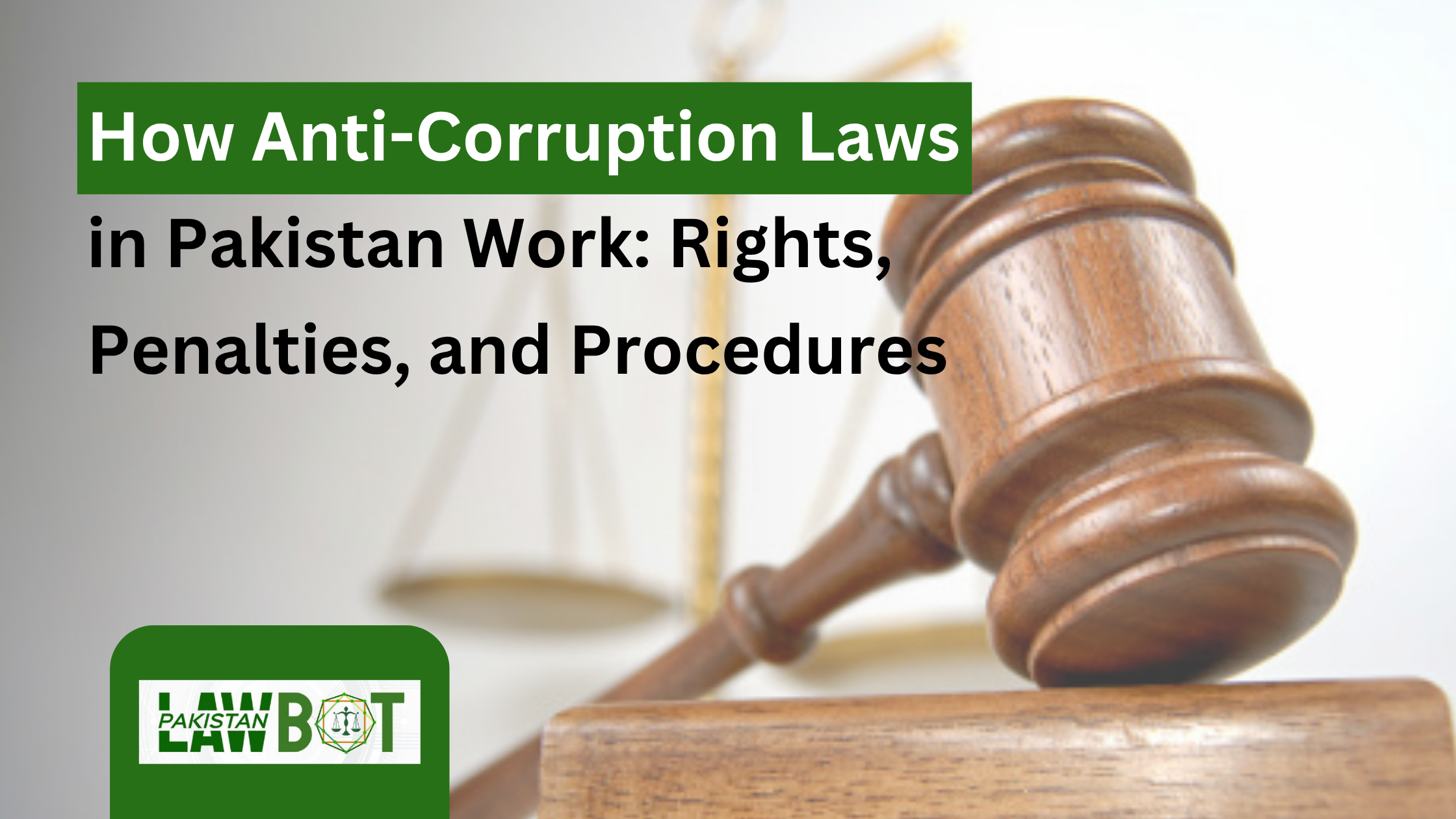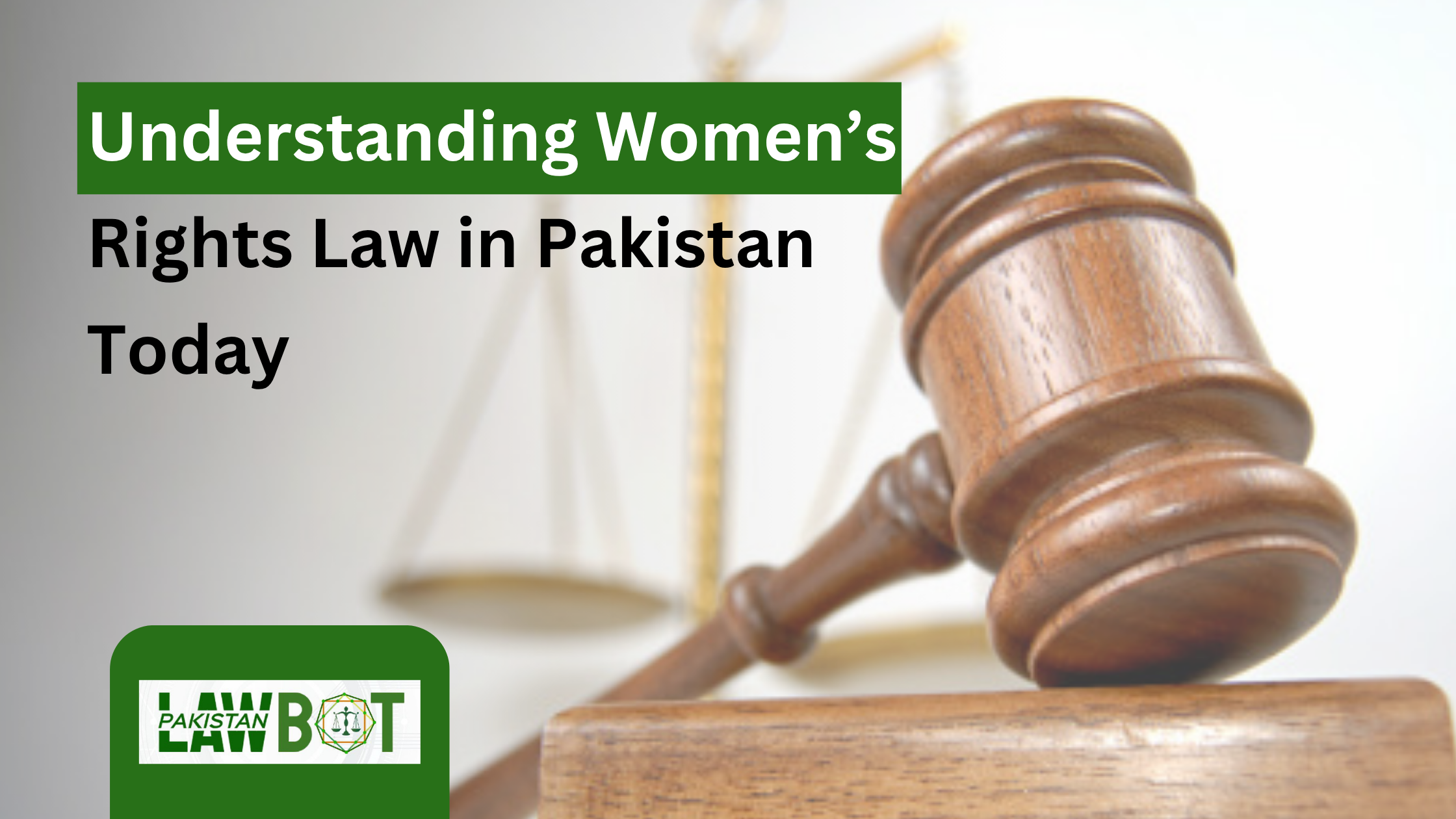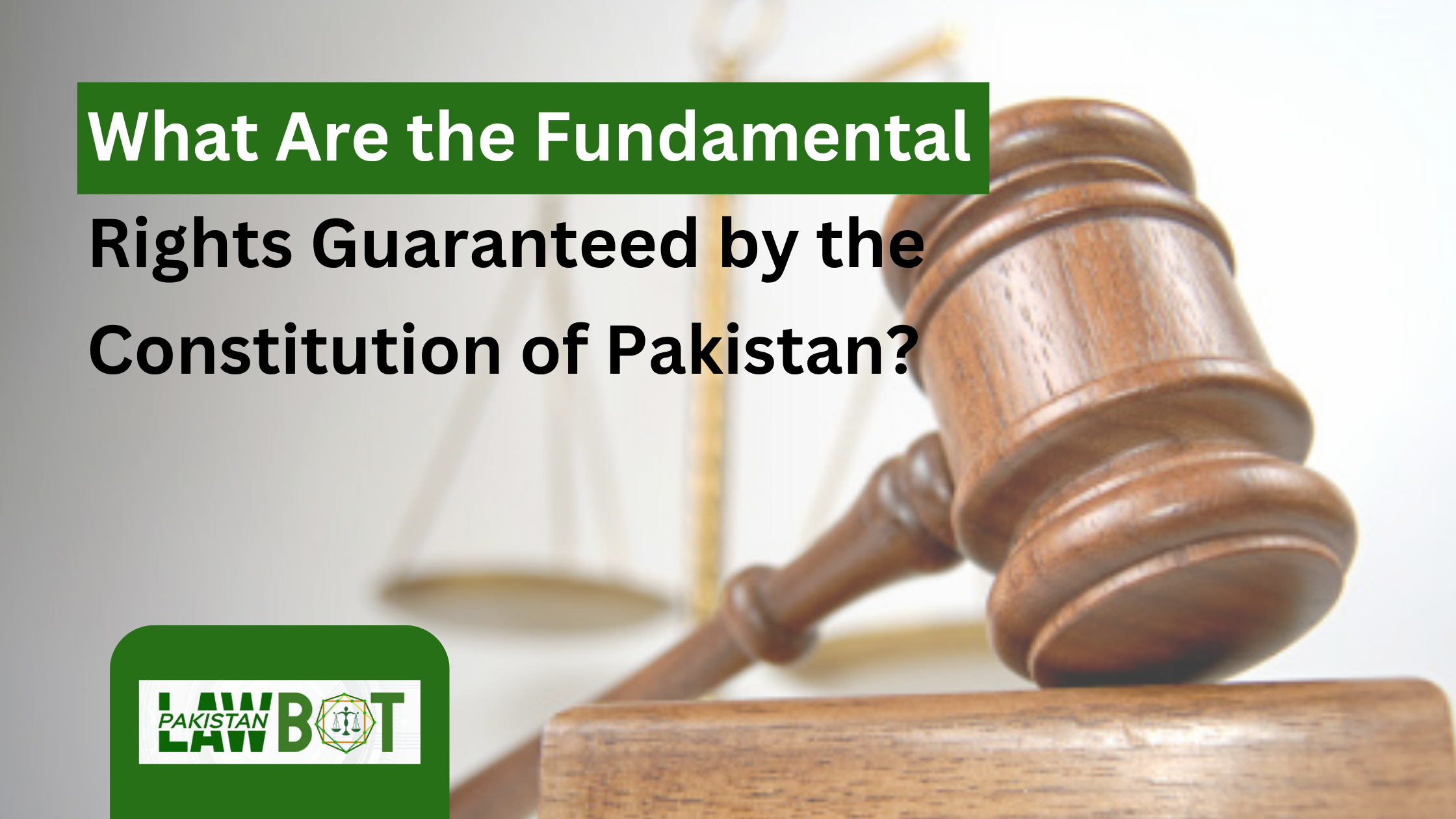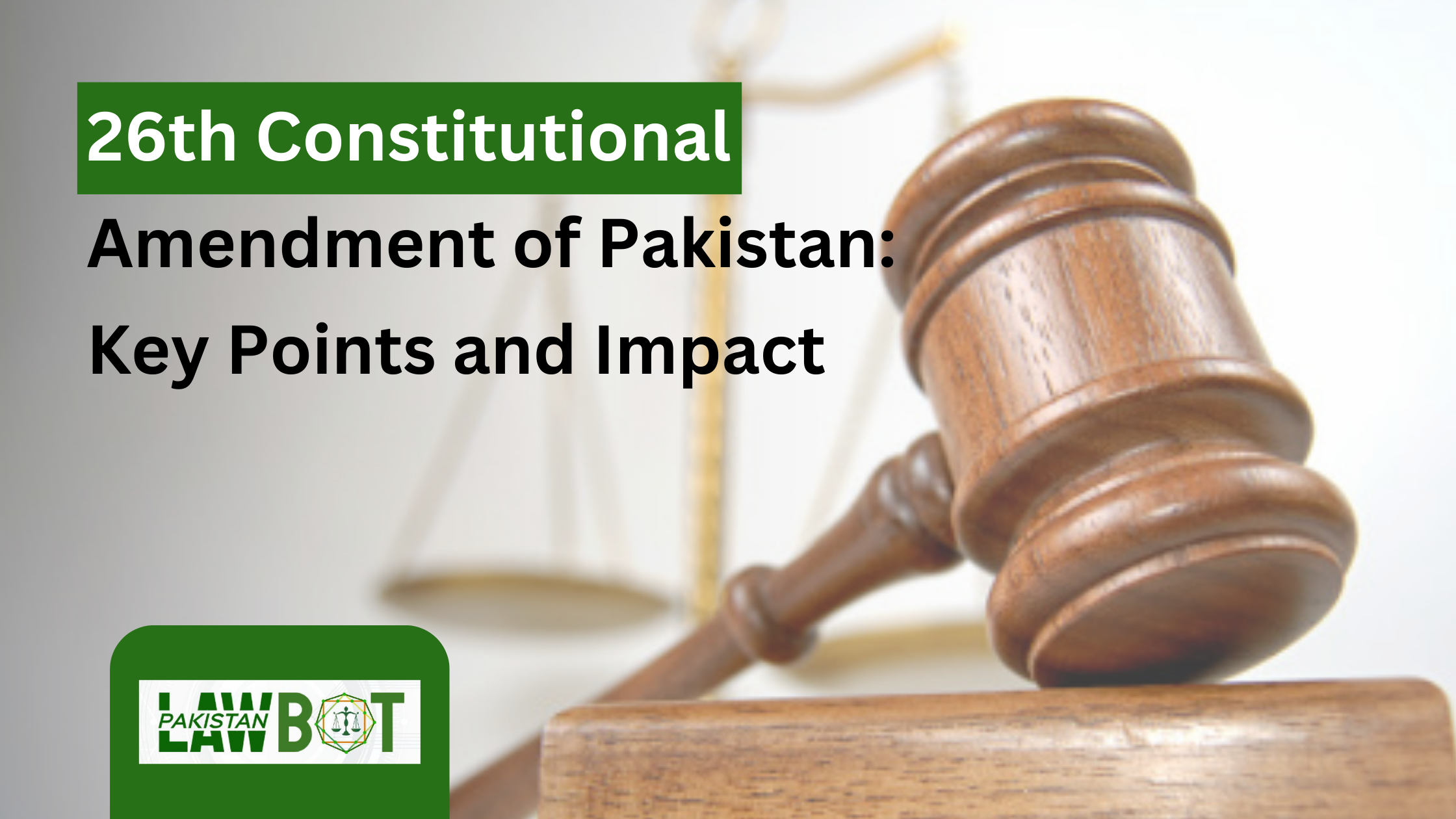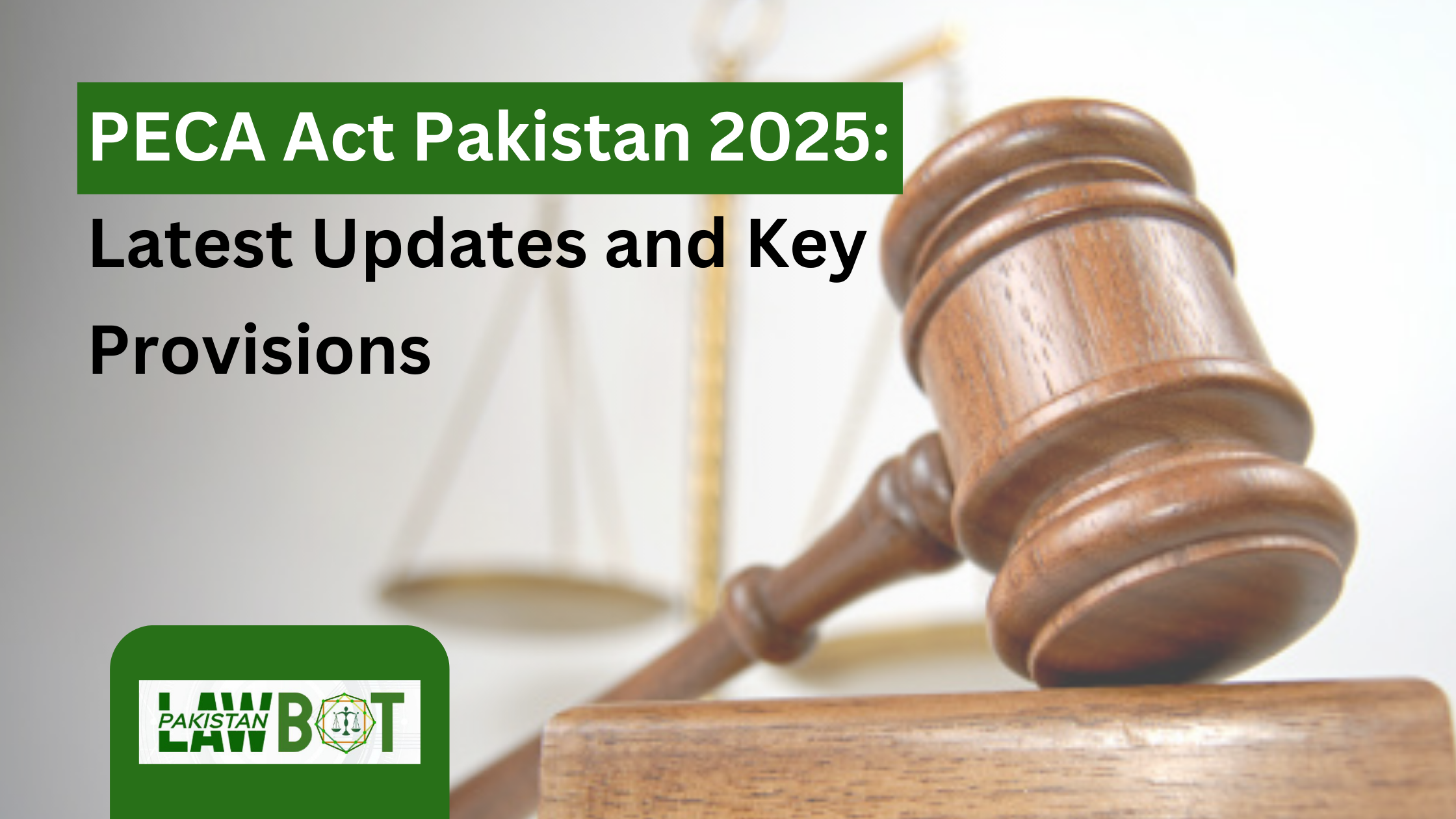Introduction
Corruption has always been a serious challenge for Pakistan. It weakens institutions, slows economic growth, and damages public trust. To fight this problem, the government has introduced Anti-Corruption Laws in Pakistan. These laws define what constitutes corruption, outline the rights of citizens, and specify penalties for offenders. They also create a system of investigation and trial to ensure accountability.
In this article, we will examine how these laws operate, the rights they afford, the penalties they impose, and the procedures they entail. By the end, you will understand why awareness of anti-corruption laws is essential for every citizen.
Why Pakistan Needs Strong Anti-Corruption Laws
Corruption not only affects governance but also discourages foreign investment and creates inequality. When officials misuse public funds, ordinary citizens suffer. Therefore, Anti-Corruption Laws in Pakistan exist to:
-
Protect national resources.
-
Promote transparency in governance.
-
Strengthen public trust in institutions.
-
Punish those who misuse authority.
Without such laws, corruption would spread unchecked, leaving little hope for accountability or justice.
Key Institutions Fighting Corruption
National Accountability Bureau (NAB)
The National Accountability Bureau is Pakistan’s leading anti-corruption agency. It investigates major cases involving bribery, money laundering, and misuse of public office. NAB courts, also called accountability courts, handle trials and issue verdicts.
Federal Investigation Agency (FIA)
The FIA deals with corruption cases at the federal level. It also handles white-collar crimes such as cyber fraud, smuggling, and money laundering.
Provincial Anti-Corruption Establishments (ACE)
Each province has an Anti-Corruption Establishment. These departments focus on corruption cases within provincial institutions, such as land revenue offices or police departments.
The Judiciary
Courts play a central role in ensuring justice. They interpret Anti-Corruption Laws in Pakistan, oversee trials, and hear appeals. The judiciary’s independence is vital for fair outcomes.
Rights of Citizens Under Anti-Corruption Laws
Strong laws are effective only if people know their rights. Fortunately, these laws give several protections and opportunities to citizens:
-
Right to File Complaints: Citizens can report corruption to NAB, FIA, or ACE.
-
Whistleblower Protection: People who expose corruption enjoy legal protection against retaliation.
-
Right to a Fair Trial: Accused individuals can defend themselves and appeal decisions in higher courts.
-
Right to Information: Citizens can demand information about public spending, tenders, and decisions under laws promoting transparency.
When citizens use these rights, corruption becomes harder to hide.
Penalties for Corruption
The penalties under Anti-Corruption Laws in Pakistan are strict to discourage illegal practices. They include:
-
Heavy Fines – Offenders must pay large amounts to the state.
-
Asset Recovery – Authorities can seize property and bank accounts obtained illegally.
-
Dismissal from Service – Corrupt officials lose their jobs and face professional bans.
-
Disqualification from Office – Politicians found guilty cannot hold public office.
-
Imprisonment – Major crimes such as embezzlement may result in long prison sentences.
Because these punishments are severe, they create fear and act as a strong deterrent against corruption.
Procedures in Anti-Corruption Cases
Filing a Complaint
Every case begins with a complaint. A citizen, organization, or government body may file it. In some cases, agencies launch investigations on their own when suspicious activity appears.
Initial Inquiry
Authorities check whether the complaint has merit. If the evidence is weak, the case may end here. However, if the evidence looks strong, the inquiry moves forward.
Formal Investigation
Investigators gather financial records, witness statements, and other documents. They may freeze bank accounts or seize assets to prevent further misuse.
Trial in the Accountability Court
If enough evidence exists, prosecutors file charges in accountability courts. Trials usually move faster here compared to ordinary courts.
Appeal in Higher Courts
Convicted individuals can challenge the verdict in High Courts and, if necessary, in the Supreme Court. This ensures fairness and protects against misuse of power.
Challenges in Enforcing Anti-Corruption Laws in Pakistan
Although the laws are strong, enforcement remains difficult. Some major challenges include:
-
Political Pressure: Influential figures sometimes delay or influence cases.
-
Slow Trials: Even accountability courts may take years to deliver judgments.
-
Limited Resources: Agencies often lack modern tools and trained investigators.
-
Low Public Awareness: Many citizens do not know how to file complaints or use whistleblower protection.
Because of these challenges, corruption cases often fail to produce quick results.
Recent Developments
In recent years, Pakistan has taken new steps to make anti-corruption efforts more effective. For example:
-
NAB and FIA have introduced online complaint systems.
-
Laws protecting whistleblowers have been strengthened.
-
Agencies now work with international partners to trace offshore assets.
-
Technology, such as digital monitoring and e-filing systems, has improved investigations.
These changes show that Pakistan is moving in the right direction, although much work remains.
The Role of Citizens in Combating Corruption
Laws alone cannot eliminate corruption. Citizens must play their role as well. By refusing to pay bribes, reporting corrupt practices, and demanding transparency, people can pressure institutions to act fairly. Civil society organizations and the media also spread awareness and hold officials accountable.
Conclusion
Corruption damages economies, erodes trust, and weakens institutions. However, Anti-Corruption Laws in Pakistan create a legal system to fight this problem. These laws give citizens the right to report corruption, impose strict penalties on offenders, and outline clear procedures for investigation and trial.
Yet, the effectiveness of these laws depends on proper enforcement and public awareness. If citizens know their rights and agencies act without political pressure, Pakistan can build stronger institutions. Ultimately, eliminating corruption is not just the responsibility of the state—it requires collective action by government, civil society, and ordinary people.
By understanding and using Anti-Corruption Laws in Pakistan, we can all contribute to a future built on fairness, justice, and accountability.

